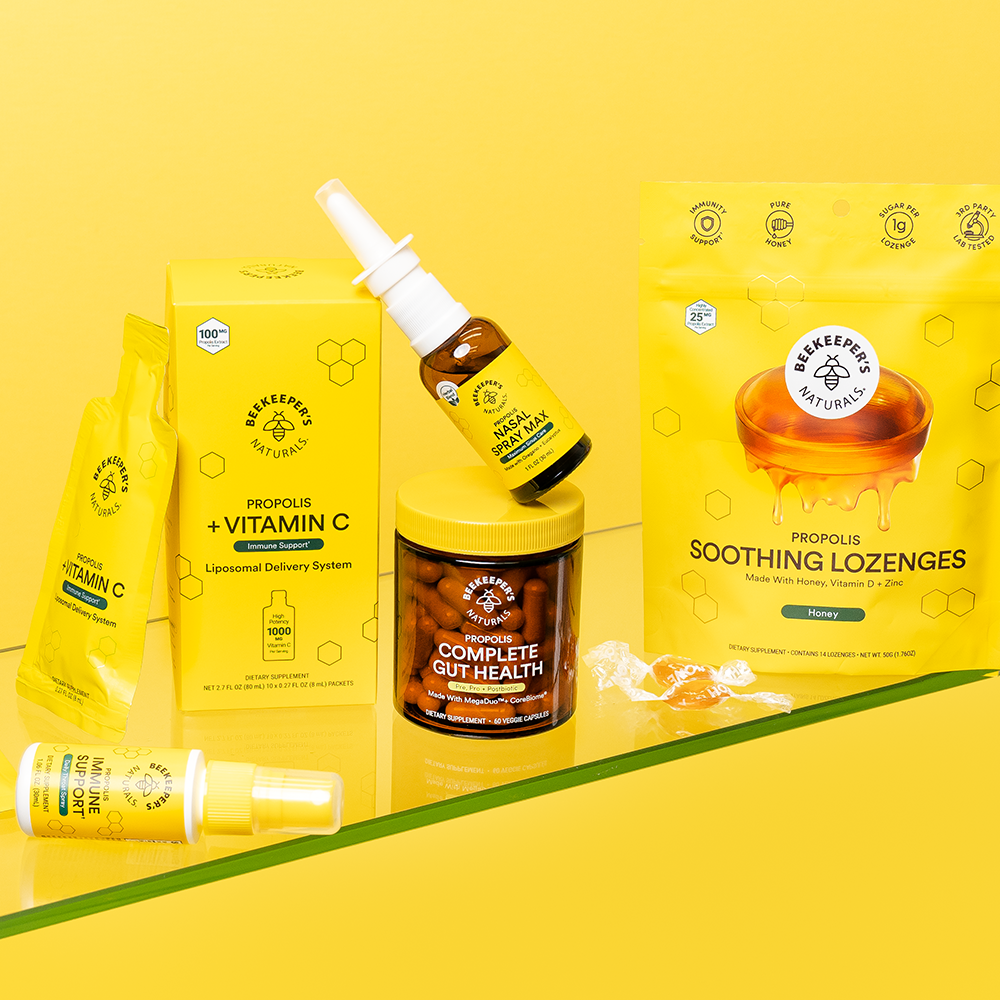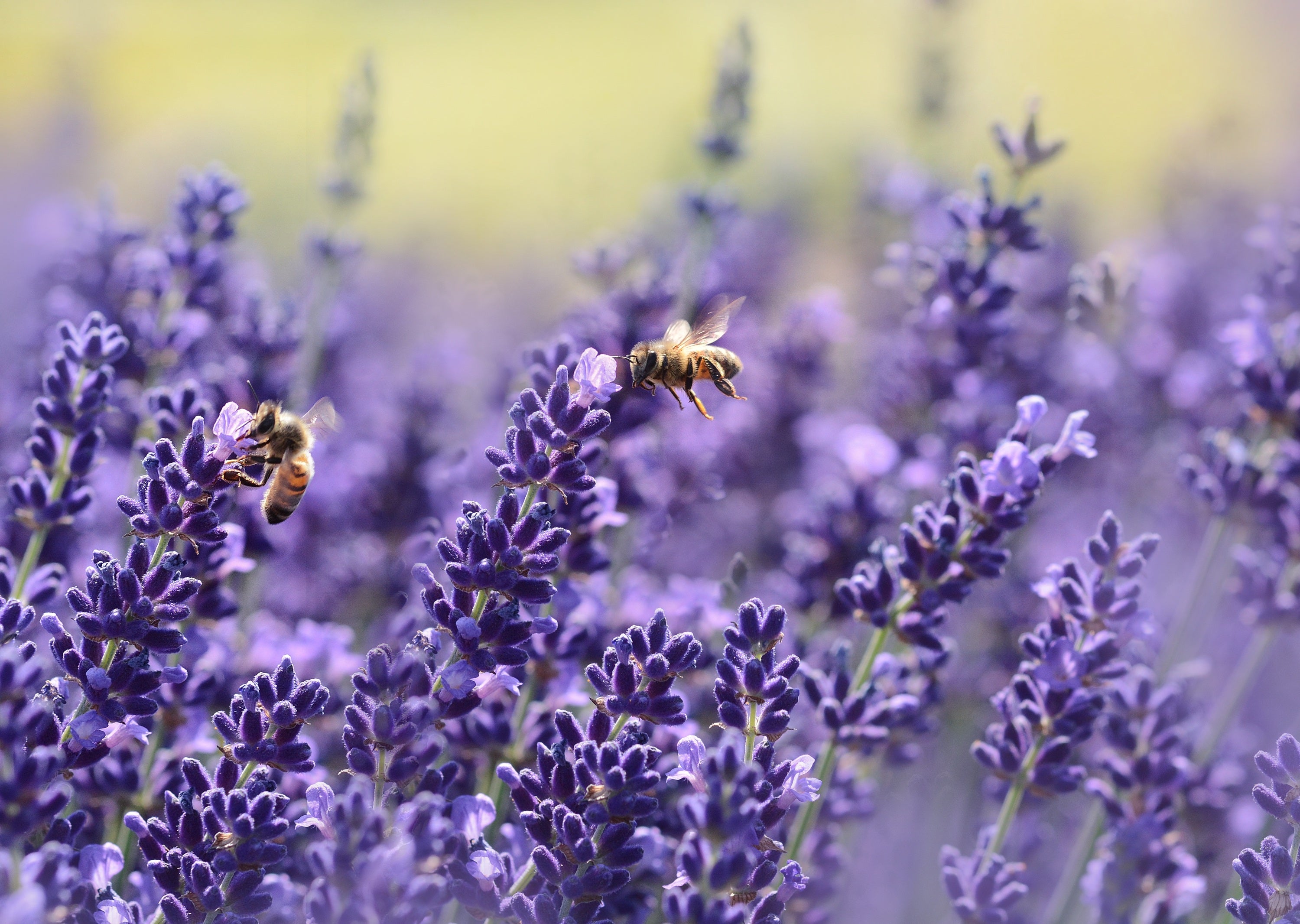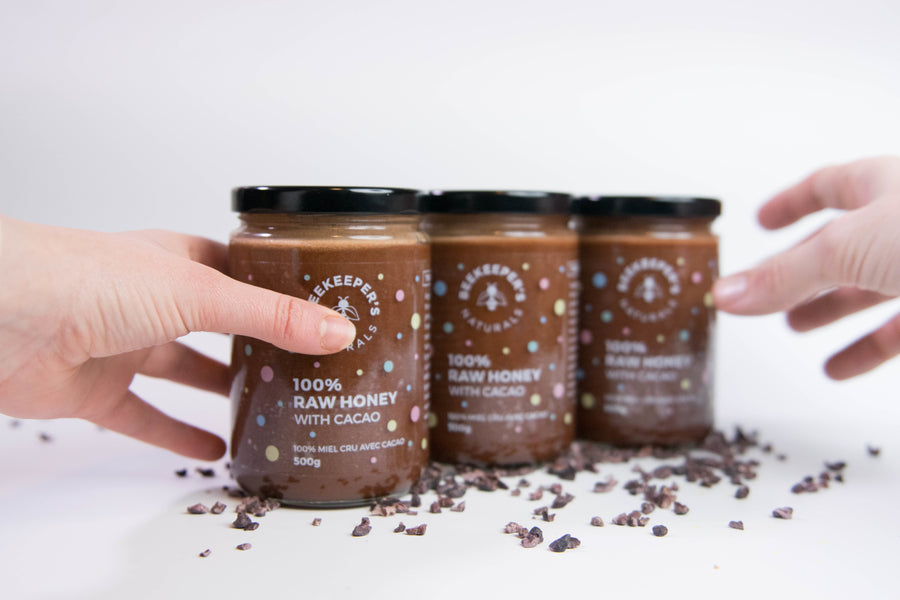Goodday mate! Our latest Unveiled takes us to the land down under, interviewing Ben of Ben's Bees. Starting at age 14, Ben has explored bee venom lip plumper, eucalyptus honey and contract pollinating berries! Intrigued? Read on for all the deets on Ben's beekeeping adventures!




-
How long have you been a beekeeper? What inspired you to start beekeeping?
I have been keeping bees for almost 24 years. Around the age of 12 I found this amazing book on beekeeping in the UK and I was fascinated. When I was 14 I told Mum and Dad that I didn’t want a puppy or a kitten – I wanted a bee hive! I had to save my own money, so I started fruit picking before and after school and on weekends. I saved up $60 and was lucky enough to find a local beekeeper in the Yarra Valley who dropped off a hive for me. This started my journey into the wonderful world of bees. Seven years ago I turned it into a business, which keeps me incredibly busy six months of the year.
-
What was your greatest fear about starting to keep bees or the biggest barrier to entry?
Most beginners’ biggest fear is that of being stung, but the greatest hurdle I had to overcome was my parents! I was fortunate that we lived on a small hobby farm of 20 acres. I was allowed to keep bees, but only if I paid for them myself and they were kept in the top paddock!

-
Tell us three lessons that you’ve learnt from the bees.
The first thing is to work with the bees and not against them. If you are agitated or uptight the bees will quickly figure that out. Stay nice and calm and the bees will behave in a similar manner. Secondly, bees make honey for themselves and not for us humans! It’s important to leave them ample resources to tie them through winter and dearth conditions, and this also improves their morale. Bees are happy when the pantry is full, just like us. Another important lesson is that there is simply so much to learn. You can never know too much about bees! These amazing creatures give so much, and no matter how often I open a hive or how much I read, there is always something new to discover.
-
How has working closely with bees changed your perception of nature or the world around us?
In many aspects bees are incredibly strong and intelligent – especially for creatures that only weigh about a tenth of a gram. But bee populations are currently suffering massive declines on a global basis due to the usage of harmful chemicals. I rent out large numbers of bees for pollination, but only for berry crops, as no pesticides or fungicides are employed on the plants. In the early days I lost bees on farms with stone fruits due to chemical usage. Keeping bees has heightened my awareness about the usage and impact of chemicals, and of the effect that we have on the environment.
-
How many hives are you currently managing?
At the moment I’m running around 180 hives. The production of honey is the least of my priorities, and this puts me in a great position as I’m able to keep the bees as naturally as possible, which results in almost zero losses.
-
What’s your favorite thing about being a beekeeper?
It would have to be meeting people and helping others to get started in beekeeping! The excitement that is obvious when someone buys a bee hive and takes it home makes it all worthwhile.
-
What is the most difficult thing about being a beekeeper?
This is an interesting question. I have a prominent presence on social media and am alarmed and dismayed by the bickering and fighting that goes on in Facebook groups and forums. It gets me down how some ‘keyboard warriors’ put up slanderous posts about other beekeepers – we are all working for a common cause!

-
What surprised you the most in your first year as a beekeeper? What was the most unexpected thing that happened with your bees?
I lost my first hive to wax moth. I had only had it for six months before the moths took over and webbed out the hive. I was both saddened and amazed at what was happening; what was once a strong colony of bees simply gave up in the end and absconded.
-
What is your favorite bee product and why?
I am a big fan of beeswax. I love how it is formed inside the hive and the range of items that the rendered wax can be used to create. I make candles and other wax products at home, and as the pure beeswax is melted the whole house is filled with a pleasant perfume!
-
Do you use any bee products for health purposes? If so, which ones, why and how.
I eat a lot of honey - to be honest maybe a bit too much! I have cut out a lot of refined sugar from my diet and substituted honey as a natural sweetener. For over a decade I could not bring myself to use honey in coffee, but I do now. If I’m not racing out of the door on an empty stomach, pollen on muesli is great. Interestingly, I remember my father doing the same thing when I was young. Maybe we’ve started a tradition and my kids in turn will also put pollen on their muesli one day!
-
What’s the weirdest thing you use a bee product for?
I bought my partner some bee venom lip plumper! I tried it and yes, I had very sexy lips for a few hours!
-
For those out there who fear the bees what words of advice do you have to clear up this misconception?
Bees only sting near their hive if it’s disturbed. I often encounter people who are scared if a bee is foraging in their garden; doing its thing, pollinating flowers and collecting nectar and pollen. Yes, bee stings hurt, but the bees only sting as a last resort!
-
Give us one awesome beekeeping trick that you have learnt.
To be honest I don’t have any tricks! Something that surprises many people (and possibly my claim to fame!) is that I rarely wear any protective clothing, as I can usually read the bees’ behaviour.

-
What are some misconceptions or unknown tricks about conducting a swarm removal?
Most of the time swarms are gentle and placid as they don’t have any stored resources or brood to protect, but sometimes a swarm can get hungry and become a bit grumpy! As I said, most of the time I don’t use protective clothing – some may call this silly, but I find bee suits hot and uncomfortable. I remember a few years ago I conducted a swarm removal that initially seemed quite straightforward, but wowser, those bees were grumpy! After more than 20 direct stings to the face, I was forced to sheepishly retreat to my van to don the suit. I was trying to appear calm, as I had an audience watching me from a distance.
-
What do you have to say to vegans who don't believe in using bee products? We openly believe that supporting ethical and sustainable beekeepers is an important part of helping the bees and generating awareness, how do you respond to people who question the practices of taking and consuming bee products?
This is very tricky, as put simply vegans won’t touch anything that’s been either made from or produced by animals. I endorse purchasing honey from local beekeepers and not off the shelf of a supermarket. Ask the beekeeper if he or she is an ethical beekeeper and ensure that the bees are cared for with the utmost respect.
-
What does sustainable beekeeping mean to you?
A great question. I keep my bees as cleanly and naturally as possible. I don’t use queen excluders, as although they allow more honey to be extracted, this leaves less for the bees. In addition, bees are also forced to squeeze through the fine grates, which has been proven to shorten their lifespan.
-
As a beekeeper, I’m sure that you’ve heard of Colony Collapse Disorder. In North America we have experienced serious issues with CCD over the last decade. How has CCD affected you?
I have not heard of CCD occurring here in Australia and have not experienced it. We are lucky in that we are isolated by sea and are therefore free from many of the destructive pathogens that pose serious threats in other parts of the world. Last year I was part of a team involved in following up on an isolated incursion of the Varroa mite in Townsville, Queensland. The authorities are to be congratulated for their excellent work in swiftly eradicating this pest – as beekeepers, we hope it stays that way!
-
Is there a neonicotinoid or other pesticide issue in your area? Is the government doing anything to reduce or ban the use of pesticides?
Unfortunately we are a bit backwards and many farms use an array of potentially harmful chemicals. Commercial beekeepers can suffer extensive and unnecessary losses when chemicals are used inappropriately near bees. Hopefully, in the future the Australian government will do more to limit the use of chemicals such as neonicotinoids.
-
What bee-related lesson or practice do you wish more people would adopt?
Less smoke! All too often inexperienced beekeepers will subject the bees to plume after plume and puff after puff of smoke, thinking ‘the more the better’! In reality, less is more and only a few gentle puffs are required.

-
How are beekeepers viewed by your community? What do your friends think when you tell them that you’re a beekeeper?
Beekeepers are the new hipsters! Many of my friends regard the practice of keeping small stinging insects as being rather weird but strangely fascinating. At a wedding last year, I was talking to the people at my table about bees, and they were completely entranced.
-
Are there any unique plant types in your area that produce a special variety of honey?
The land down under is known internationally for our eucalyptus! We produce some of the best eucalyptus honey in the world; river red gum is one of my personal favorites.
-
What is your beekeeping goal for the next year ?
I’m slowly increasing my numbers of hives, but my primary goal is to help local schools with beekeeping programs for their students. I believe by targeting the next generation we can achieve a cleaner, brighter future.
-
What is the one thing you want people locally to start doing to help the bees? Internationally? If you could share one message about the bees with the general public what would it be?
Everyone should keep bees or even host a hive! Keeping bees is fun and rewarding. The humble honey bee offers us so much and these amazing invertebrates are crucial to our survival.
-
What would you tell people to inspire them to act? What changes can we make in our lives to help the bees?
Plant flowers! Not only do they help to beautify our gardens, but they also provide bees with vital resources in the form of pollen and nectar. Also, forget about large supermarket chains, buy your honey from a local beekeeper and help support a local family and the community around them.





